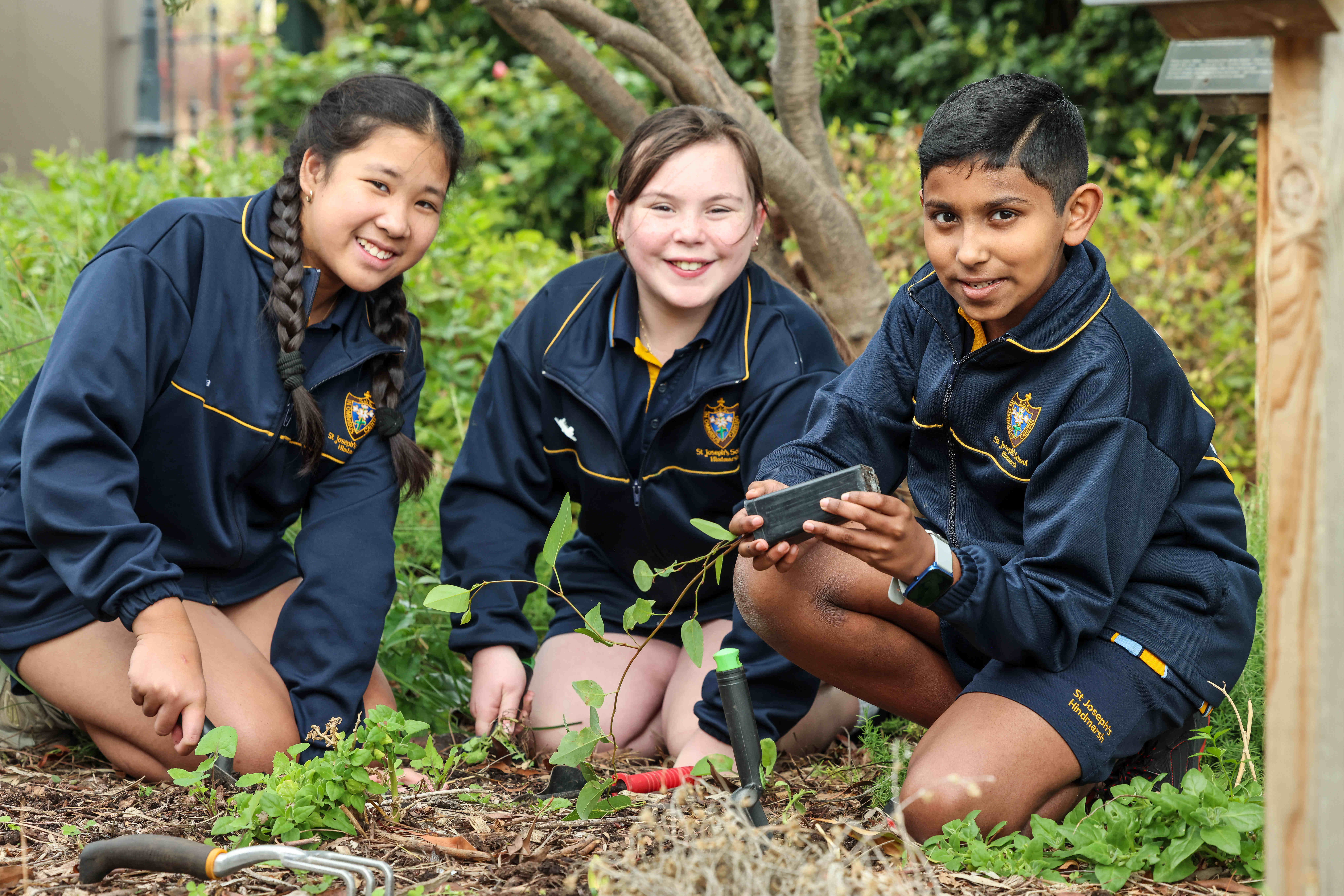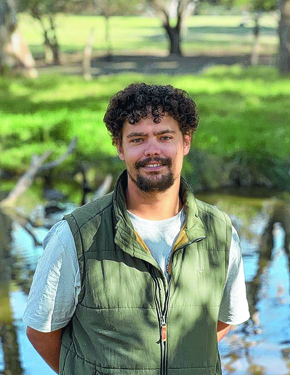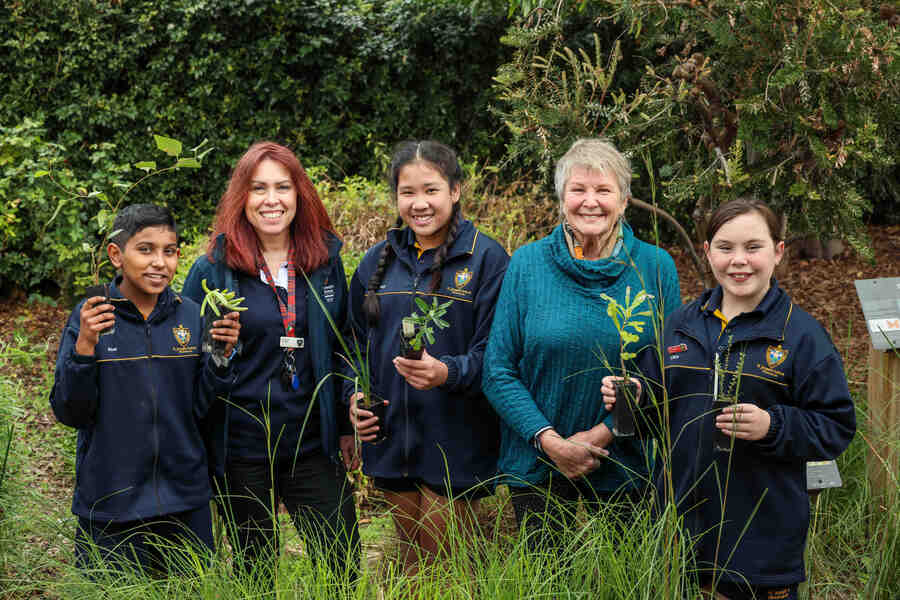
EVERYONE’S WELCOME AT A CATHOLIC SCHOOL.
Discover your local
Catholic school during
Catholic Schools
Open Week
August 4-10



Discover your local
Catholic school during
Catholic Schools
Open Week
August 4-10




Students learn Indigenous histories, cultures and traditional skills through nature
An inspiring project at St Joseph’s School West Hindmarsh is bringing the oldest culture in the world into the lives of some of Australia’s youngest students.
For the past two years, the Kaurna Food and Fibre project has immersed Year 5/6 students in Kaurna Miyurna culture through the exploration of endemic plant species.
Devised in collaboration with First Nations people and led by education for sustainability consultant Deidre Knight and Aboriginal education focus teacher Antoinette Di Paolo, students gained an understanding of Aboriginal and Torres Strait Islander histories, cultures and traditional skills.
“The idea is to stop and think about how Kaurna people lived here before any other culture and it is quite a remarkable story,” Ms Knight says.
“There were no shops so they had to use their own observational skills. Their knowledge was deep and was shared over generations.”
Lessons covered practical skills including species propagation and landscape design, as well as science, geography, Kaurna language, artistic expression and research as students learned to identify plants endemic to the area and develop their own school garden. “Every week we focused on something new,” Mrs Di Paolo says.
“We had a word wall with the Kaurna language displayed alongside photographs. As the students worked through the program, we displayed their findings on the word wall so children not involved in the program also had an opportunity to learn.”
Walking Together with Kaurna’s Drew Kilner worked with the students on the Kaurna Food and Fibre project, funded by Green Adelaide and supported by the Australian Association for Environmental Education SA Chapter. “The students gained a new connection to country – walking away with a greater appreciation for what is everyone’s country now,” he says. “My ancestors have looked after and loved this country for 70,000 years so hopefully we are inspiring the next generation to follow in their footsteps.”
Year 6 students Chiara, Maya and Abel were certainly inspired by what they learned over the two years of the project. “I thought it would be a good opportunity for me to learn about different plants, come closer to nature and enjoy the overall experience,” Chiara says. “I was excited to learn about different plants – when and how to grow them. I learned a lot of new plant names like the banksia and chocolate lily and kangaroo grass.”
For Maya, the project also created a new pastime she could enjoy with her family. “My whole family is into plants in general,” she says. “I learned how the Kaurna people used their limited resources to provide for them and their families. I also learned about the plants, what makes them thrive and grow. I got to grow my own plants and use different techniques to see what works best.”
Keen gardener Abel was also thrilled to take part.
“I learned that the Kaurna people used all types of plants for different things like medicine or food. I also learned that plants are hard to grow and need lots of attention.”
Witnessing the students’ development during the course of the project has been a rewarding experience for Ms Knight. “For the students to watch those plants grow – the power of a seed as an idea, that’s very powerful, particularly in today’s world where children might not be feeling empowered to know, ‘I can put that seed in there and I have faith that’s going to grow.’ That gives them a lot of strength to try other things.”
A manual and curriculum with lesson plans developed using the students’ research are available for download from the school’s and Australian Association for Environmental Education SA Chapter websites and will be shared on Green Adelaide’s website. “Any teacher can pick up the manual and run with it – it has everything they need to know to establish a garden similar to ours in their own school environment,” Mrs Di Paolo says.
Discover your local Catholic school - find a school tour during Catholic Schools Open Week, August 19-25 2024




A new regional and remote strategy is supporting remote and regional South Australian children
Whether families call Brighton or Barmera home, Catholic Education South Australia (CESA) is focused on ensuring every child in the state has access to high-quality Catholic education, regardless of their location.